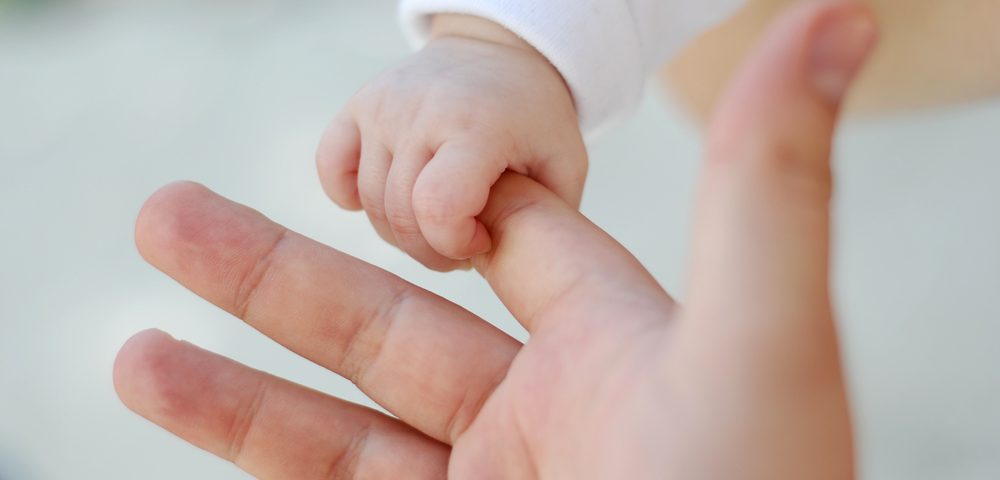Newborn Screening in Massachusetts Seen as Highly Accurate, Effective

Newborn screening (NBS) for spinal muscular atrophy (SMA) in Massachusetts allowed for early detection and treatment of affected infants, with most referred to a specialist within the first week of life, three-year data from the state’s SMA screening program show.
Notably, the program used a tiered algorithm with screenings that effectively prevented false-positive results, or wrongful identification of SMA in infants without the disease.
Data also suggested that SMA frequency may be lower than previously thought, in agreement with previous one-year findings from an SMA screening program in New York State.
The SMA newborn screening program in Massachusetts and its use were described in the study “Massachusetts’ Findings from Statewide Newborn Screening for Spinal Muscular Atrophy,” published in the International Journal of Neonatal Screening.
The most common genetic cause of death in infants and children, SMA is estimated to affect 1 in every 8,000 to 10,000 births. In 95% of cases, it is caused by the complete loss of exon 7 in both copies of the SMN1 gene, impairing the production of SMN, a protein essential for motor neuron and muscle health.
Exons are the sections of a gene that contain instructions for protein production.
The existence of a “backup” gene, called SMN2, compensates for the loss of SMN1-produced SMN to a certain extent. Typically, the more SMN2 gene copies a person has, the less severe the disease.
The approval of the first SMA treatment — Biogen’s Spinraza (nusinersen) — in late 2016 and the proven importance of early detection and treatment in preventing lifelong disability prompted the start of newborn screening programs for SMA in a number of countries, including the U.S.
Massachusetts was one of the first states to offer such screening, beginning in January 2018, six months before SMA was added to the U.S. Recommended Uniform Screening Panel for newborns. As of now, 37 states screen for newborns for SMA, within established or pilot programs, accounting for about 85% of births nationwide.
Researchers looked at data from Jan. 27, 2018, through Jan. 31, 2021 — the first three years of the Massachusetts’ SMA newborn screening program.
Newborns were screened for SMA through a tiered algorithm that, in the absence of exon 7 in both SMN1 copies in the first genetic test, involved a second test to prevent false-positive results by assessing the presence of SMN1 hybrids.
SMN1 hybrids are those who carry a variant in the region used to “read” exon 7 which, due to the design of the standard genetic test for exon 7, can give a false-positive result.
When necessary, blood samples were also analyzed by Sanger sequencing, a more accurate genetic test to detect the presence of exon 7 in the SMN1 gene. The program also included assessing SMN2 copy number in infants screening positive for SMA.
Of the 179,467 infants screened, nine showed exon 7 deletions in both SMN1 copies and were rapidly referred to a specialist, with the first visit occurring at a median age of 7 days (range, 0–26 days).
The median time for reporting a SMA positive finding to a primary care physician was 1 day (range, 0–3 days), and infants were treated at a median of 18 days of age. All were treated with Spinraza, the gene therapy Zolgensma, or both, with one infant also receiving the most recently approved SMA therapy, Evrysdi (risdiplam).
At last follow-up, all nine SMA-affected infants were alive and four were meeting developmental milestones expected for healthy infants. Mild to moderate developmental delays were observed in the other five.
There was no evidence of a false-negative screening result, while a false-positive result was reported in the first months of the program, yielding it a 100% sensitivity (true-positive rate) and a 99.9% specificity (true-negative rate).
Ten infants were found to carry a SMN1 hybrid, resulting in a frequency of 1 in 17,947 births, “which is similar to the incidence of 1 in 24,053 reported in the Taiwanese population,” the researchers wrote.
Overall, the Massachusetts program showed an SMA frequency of 1 in 18,957 births (range of 1 in every 12,061 to 57,519 births), which was between 1.9 and 2.4 times lower than expected (1 in 8,000 to 11,000 births).
“Whether the lower incidence in Massachusetts is due to a limited population sampling, reproductive choices, or a combination of the two remains to be answered,” the team wrote.
“SMA NBS is feasible and allows for the early detection and treatment of affected infants,” the researchers wrote, adding that they are “optimistic that SMA NBS will help to maximize the likely benefits of early treatments.”
The post Newborn Screening in Massachusetts Seen as Highly Accurate, Effective appeared first on SMA News Today.



